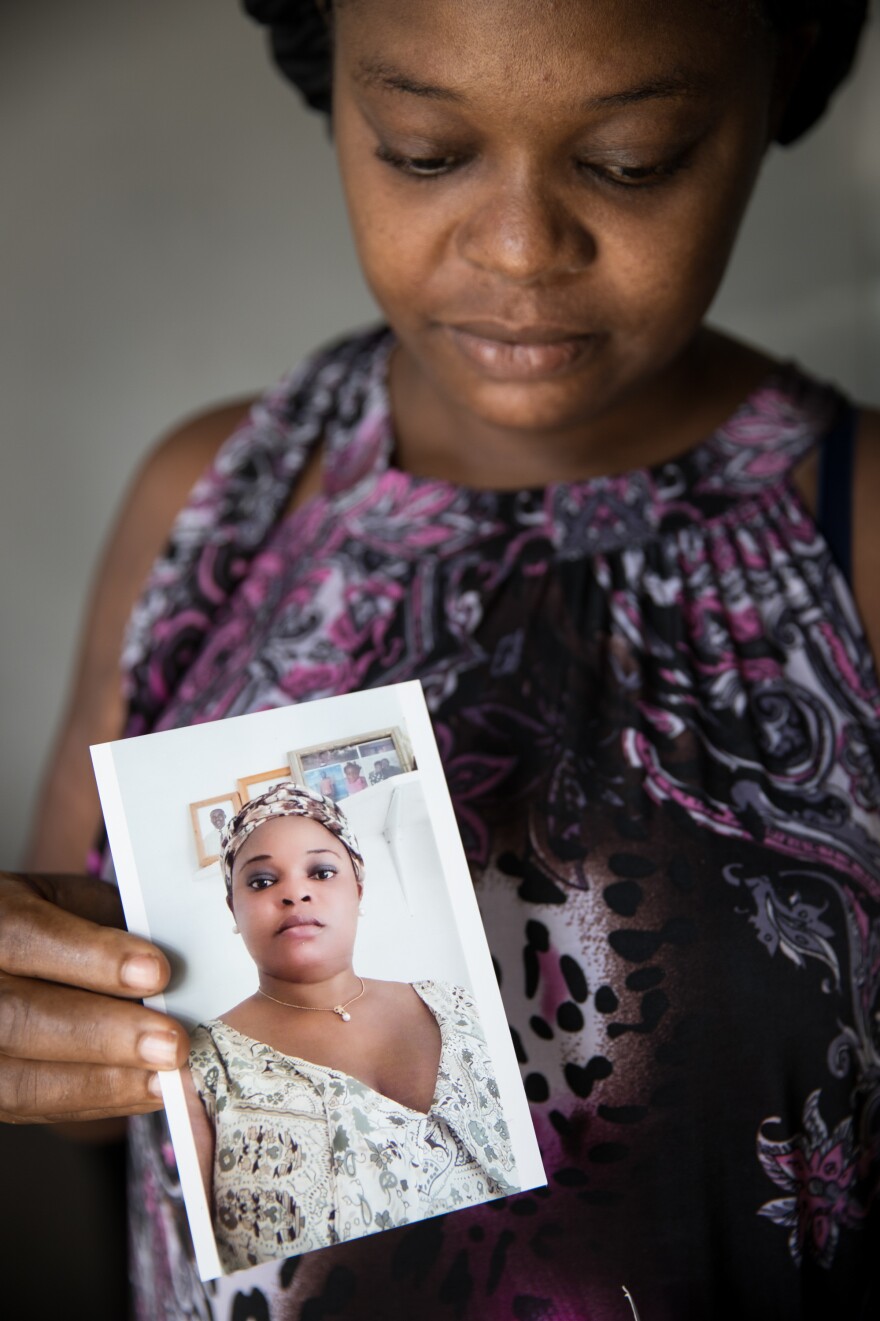Editor's note: This story includes images that some readers may find disturbing.
Sherrine Petit Homme LaFrance was crying on the side of a road when China Laguerre spotted her.
Hurricane Dorian destroyed LaFrance's newly constructed house in Great Abaco Island on the northern edge of the Bahamas the same night she moved in. That was on Sept. 1.
She then moved into a hotel offering free shelter in Nassau with her husband and 14-year-old son. But she says they were kicked out when staff found her son talking to guests.
She had nowhere to go. So Laguerre invited her to come stay at the home she shares with her parents and her brother.

"If these people didn't help, I didn't know what we were going to do," says LaFrance. "I just thank God for these people."
LaFrance is one of thousands of Haitians who lived in Abaco but were displaced to Nassau after the storm. The government's policy is to keep evacuees off Abaco until power, water and housing is restored.
But life in Nassau is not easy for evacuees: Haitians in the Bahamas — some recent immigrants, others who have lived in the Bahamas for generations — say that they face discrimination by their Bahamanian neighbors and that government officials that has made it harder to access emergency aid, shelter and health care and to find jobs to get back on their feet after the storm. On Oct. 2, Prime Minister Hubert Minnis announced that Haitians in the Bahamas without documentation would be deported.
So some are relying on the kindness of strangers — and Laguerre's home has emerged as the headquarters of an ad hoc Haitian community support network.

While volunteering at a local hospital after the storm, Laguerre, 31, met Haitian evacuees who inspired her to open her doors to strangers.
"I feel sorry because it could've been me," she says.

Laguerre was born and raised in the Bahamas, but her parents are of Haitian descent. Despite not having enough money to pay their water bill, they have taken in 10 Haitian evacuees from four different families. They pool together what resources they can to grocery shop and cook for everybody in their compound.
"I wouldn't say the floor is comfortable because it's just cement," she says. "We just let them put a sheet on the floor, and they sleep on the ground like that."

The families are still working through the physical and psychological effects of the storm. Lacieuse Timothee of Treasure Cay spent two days buried beneath debris before her sons found her. At the Laguerre home, she spends most of her time in bed. She says she is partially paralyzed, and the injuries around her feet have begun to turn black.

Laguerre and her parents do not have enough room in their home to keep welcoming guests. But they help those in need however they can. Recently, Laguerre referred a young mother to a friend's house so she wouldn't be left on the street with her child.
"I am not employed, but by the goodness of my heart — and I believe in God — this is God's work here I am doing," she says.

For now, LaFrance's family is living off the small amount of money that their relatives send from Haiti. They're unsure when things will start to look up.

"You can't even sleep. You have nightmares. You feel like you're still in the storm," says LaFrance, more than a month after Hurricane Dorian made landfall. "If you see a little rain, you think the storm is coming again."
Copyright 2023 NPR. To see more, visit https://www.npr.org.














